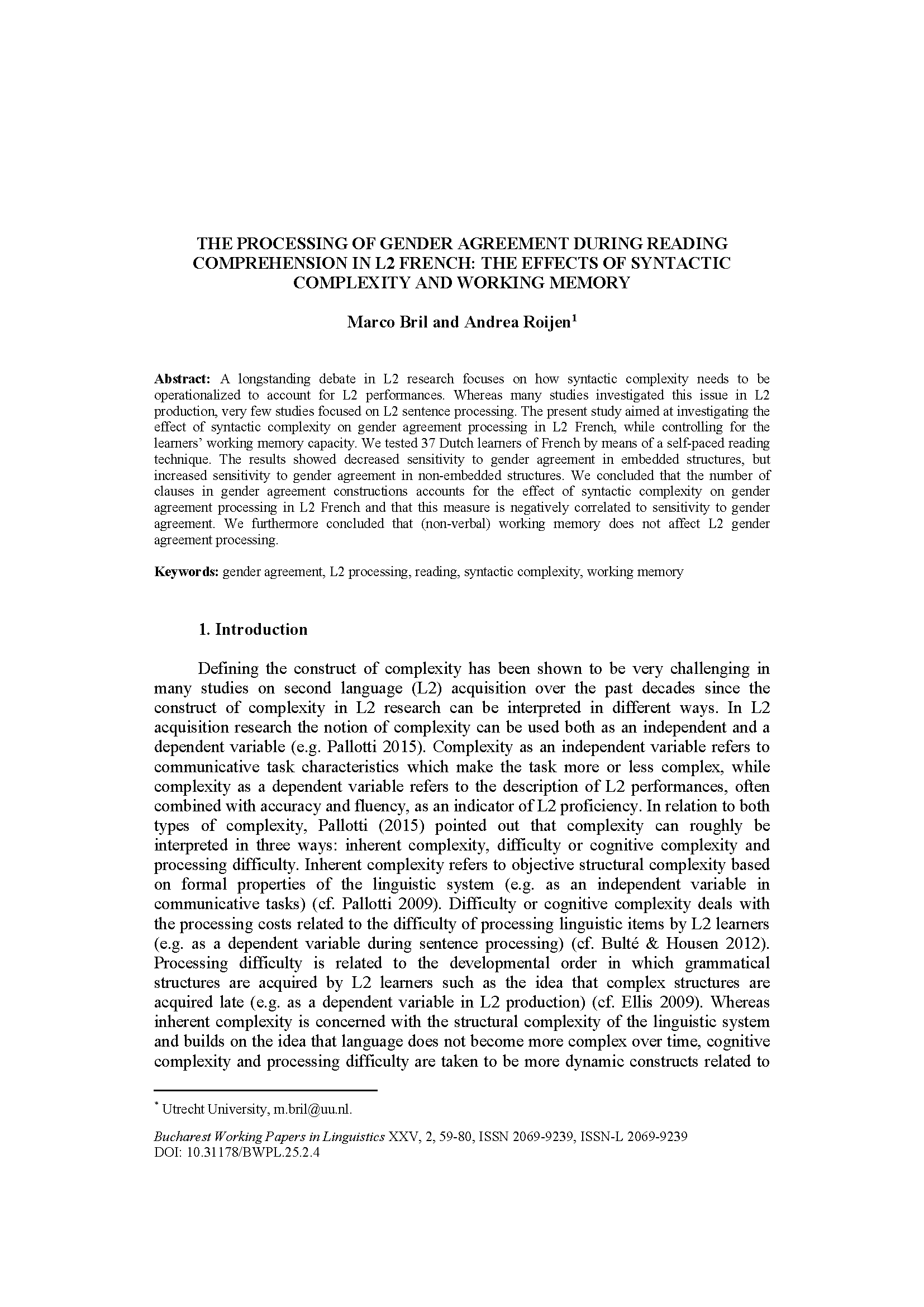THE PROCESSING OF GENDER AGREEMENT DURING READING COMPREHENSION IN L2 FRENCH: THE EFFECTS OF SYNTACTIC COMPLEXITY AND WORKING MEMORY
DOI:
https://doi.org/10.31178/BWPL.25.2.4Keywords:
gender agreement, L2 processing, reading, syntactic complexity, working memoryAbstract
A longstanding debate in L2 research focuses on how syntactic complexity needs to be operationalized to account for L2 performances. Whereas many studies investigated this issue in L2 production, very few studies focused on L2 sentence processing. The present study aimed at investigating the effect of syntactic complexity on gender agreement processing in L2 French, while controlling for the learners’ working memory capacity. We tested 37 Dutch learners of French by means of a self-paced reading technique. The results showed decreased sensitivity to gender agreement in embedded structures, but increased sensitivity to gender agreement in non-embedded structures. We concluded that the number of clauses in gender agreement constructions accounts for the effect of syntactic complexity on gender agreement processing in L2 French and that this measure is negatively correlated to sensitivity to gender agreement. We furthermore concluded that (non-verbal) working memory does not affect L2 gender agreement processing.




